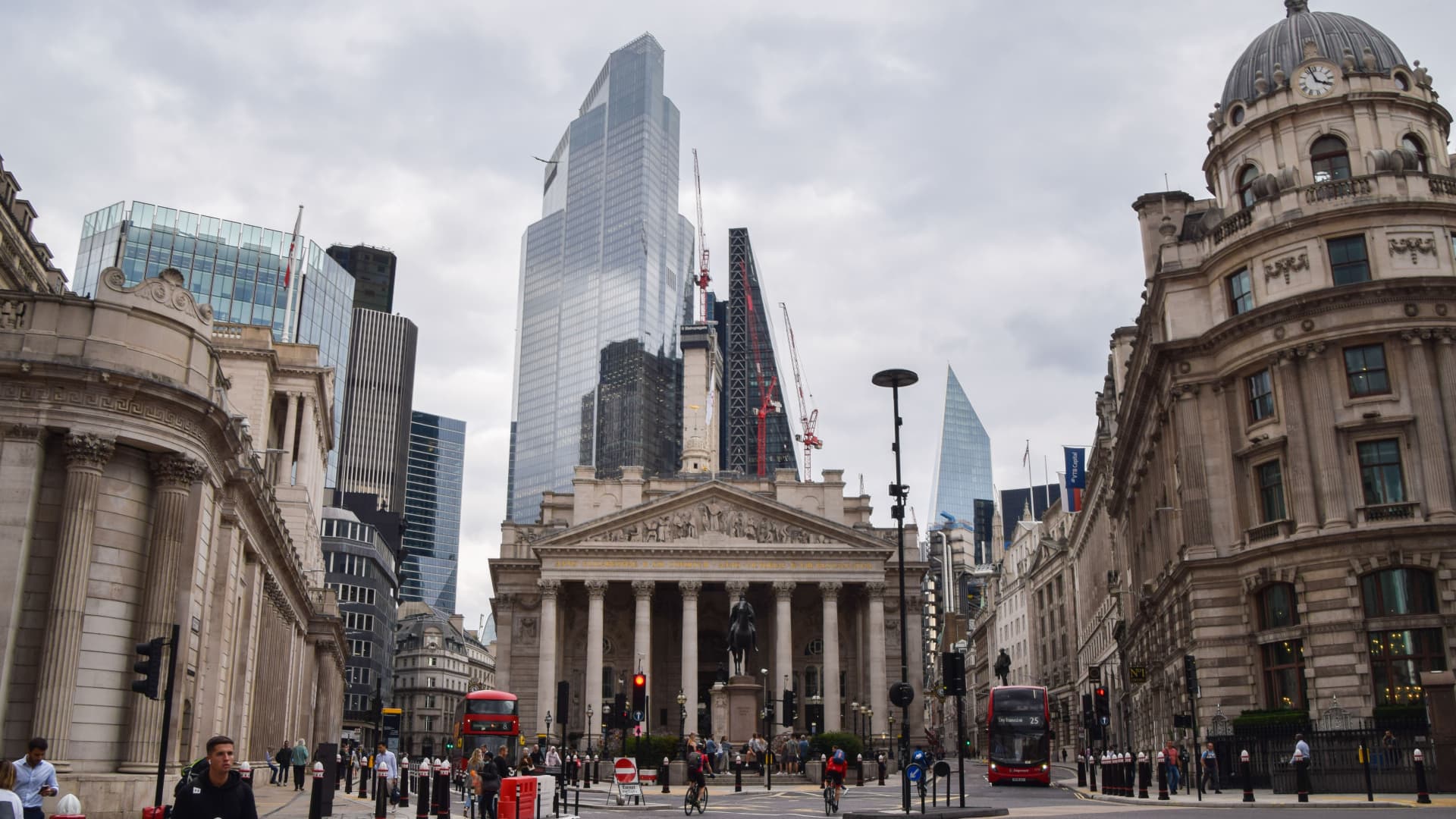Bank of England raises interest rates by 50 basis points for 7th straight hike

The Bank of England has warned that the UK will enter a recession later this year. The expected recession is predicted to be the longest since the global financial crisis.
Vuk Valcic | SOPA Images | Lightrocket | Getty Images
The Bank of England on Thursday decided to raise the base rate from 1.75% to 2.25% to combat inflation which remains five times higher than its target.
UK inflation eased slightly in August, but 9.9% YoY Well above the bank’s target of 2%. Energy and food had the biggest price gains, but core inflation excluding these factors remained at 6.3% on an annualized basis.
The BOE cut its key interest rate, known as the bank rate, to 0.1% in March 2020 in an attempt to support growth and spending at the start of the coronavirus pandemic. But it was one of the first major central banks to start a rate hike cycle at its December meeting, as inflation began to rise sharply late last year.
This is the seventh consecutive increase, with UK interest rates rising to levels last seen in 2008.
Five members of the monetary policy committee voted in favor of a 0.5% rise, and three voted in favor of the 0.75% rise some analysts had expected. One member voted for her 0.25 points increase.
Banking decisions are getting weaker british poundrecession forecasts, the European energy crisis and a new economic policy program to be introduced by the new Prime Minister Liz Truss.
Pound hits multi-decade low dollar It has been trading below $1.14 until Wednesday this week and has broken below $1.13 early on Thursday. The dollar has depreciated sharply against the dollar this year and remained at this level in 1985.
The devaluation of the pound comes as traders flock to investments deemed safe havens amid volatility in global markets and the US Federal Reserve hikes interest rates, boosting the strength of the dollar and the grim outlook for the UK economy. caused by a combination. .
Together with numerous analysts and industry groups, British Chamber of Commerce and the BOE itself, they say they expect the UK to enter a recession by the end of the year. Energy price shocks, as well as trade bottlenecks from Covid-19 and Brexit, declining consumer sentiment, Decrease in retail sales.
Meanwhile, the country newly formed government It presented a number of key economic policy proposals this month ahead of a “fiscal event” dubbed the mini-budget, which will be formally announced on Friday.
This is expected to include a reversal of the recent National Insurance tax hike, tax cuts for businesses and homebuyers, and plans for low-tax “investment zones.”
on the truss repetitive stress Tackling tax cuts to boost economic growth.
But the energy crisis has also meant that governments have announced huge spending packages to curb skyrocketing bills. household When business.
Data released Wednesday showed the UK government borrowed £11.8bn ($13.3bn) last month, almost double expectations, on the rise in government spending, compared to the same month in 2019. £6.5 billion more than
The UK is not alone in raising interest rates to combat inflation.European Central Bank price increase 75 basis points earlier this month, the Swiss central bank hiked 75 basis points on Thursday morning.US Federal Reserve System Increased benchmark rate range Same price on Wednesday.
https://www.cnbc.com/2022/09/22/bank-of-england-raises-rates-by-50-basis-points-in-seventh-consecutive-hike.html Bank of England raises interest rates by 50 basis points for 7th straight hike



